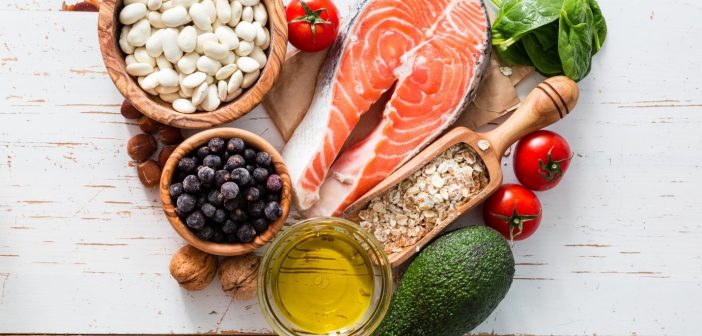10 Simple Diet Improvements You Can Start Today
Did you resolve to get healthier in 2019? It’s easier than you might think! Here are 10 simple diet improvements that you can easily get started with today.
Did you resolve to improve your physical health in 2019?
You are not alone. The top New Year’s resolution this year is to eat healthier and lose excess weight!
This resolution is often at the top of everyone’s list, and for good reason. A healthy diet can positively influence sleep cycles, relationships, work performance, and longevity.
It can even minimize the risk of terminal illness or heart disease.
But what simple diet improvements can you make to improve your health this New Year? We have some great ideas!
Read on for insight.
- Understand Your Current Diet
The key to making any change lies in awareness. Recognizing the nature of the diet you currently follow is vital to making improvements of any kind.
Most of us are somewhat aware of the foods we regularly consume. You don’t necessarily need to be counting calories religiously to understand your diet.
In fact, calorie-counting could actually hinder your goals for weight loss.
A restriction mentality can evolve into harmful eating disorders. It can even promote a feast-and-famine mentality, where eating less actually leads to eating more.
Challenge yourself to go beyond general awareness of your current eating habits. Consider, for example, simply tracking what you eat for a week in a notebook.
Do your best not to make any changes–merely make note of all ingredients you consume, portion sizes, and other relevant eating habits.
How many meals do you generally eat per day? What ingredients show up the most often? When do you tend to eat during a given weekday?
Is there a difference between the way you eat on the weekend and the way you eat during the week?
Simply asking these questions alone may start to reveal ideas for small changes. Keep this mental image of your current diet at the fore as you make the other simple diet improvements outlined in this post.
- Consume More Plant-Based Meals
Eating more plant-based meals is not only good for the environment. Plant-based nutrition can transform your diet and minimize your risk of heart disease.
Studies indicate that people who regularly consume red meat are at higher risk of diabetes, stroke, and heart disease. The same goes for individuals who do not consume a sufficient amount of vegetables, fruits, and healthy plant-based fats.
Plant-based nutrition is also packed with valuable vitamins, antioxidants, and nutrients your body needs to fend off illness. It can even lower levels of oxidative stress, which contribute to the production of free radicals (a cancer agent).
One of the best simple diet improvements you can make is to consume more plant-based meals.
This may mean eating one vegetarian meal a week. Or it could mean cutting back on the amount of red meat you consume.
You may even want to go entirely vegetarian! If that sounds daunting, consider going pescatarian. Pescatarian diets still enable you to eat fish, which can add valuable omega-300 fatty acids to your diet.
- Limit Harmful Processed Ingredients
The majority of packaged food contains processed ingredients.
Processed ingredients are any food items that have undergone specific processing prior to being placed on your grocery store’s shelves.
Not all processed food is bad. For example, cheese is technically a processed food (due to pasteurization).
But some ingredients in processed foods can be harmful. These additives include artificial flavors or coloring, MSG, high fructose corn syrup, preservatives, and synthetic fats.
Processed foods can also be high in unhealthy fats, those that easily convert to trans fats.
Get comfortable reading labels of any processed or packaged food items you bring home. Stay far away from any items that contain additives or harmful ingredients.
Better yet, replace processed foods with raw ones. This often means eating more fresh fruits and vegetables. You may even want to pay a visit to your local health food store’s bulk section, which often contains 100% unprocessed ingredients.
- Eat In More
If you haven’t yet done so, take the time now to identify how many times you tend to eat out per week.
Eating out doesn’t necessarily lead to poor eating habits. It is possible to eat out and consume healthy, nourishing food.
However, when you eat out, you may not be aware of every ingredient in the dishes you request. It’s also more difficult to control portions when you drop by a restaurant.
Eat in more to improve your diet. Doing so will give you the opportunity to create your own healthy recipes. You will also be able to control your own portions and the types of ingredients used.
This can be vital for individuals with food allergies, too. And eating in is likely to be of great benefit to your wallet!
- Craft a Meal Plan
There’s no need to invest in a calorie tracker to improve your diet. Yet building a meal plan can help you commit to a healthful diet.
Use a calendar or planner to approximate the types of meals you wish to consume each week. Your meal plan can include recommended servings of vegetables, fruits, grains, meats, and dairy products, too.
Meal plans also give you an opportunity to schedule dinners at home (as opposed to at a restaurant), plan grocery store trips, and monitor portions.
Set your own boundaries for sticking to this meal plan. Do your best to see it as a guide (rather than something restricting you!).
There are also some great free apps for building a meal plan that works for you. Check out Yummly as a great example.
- Eat More Anti-Inflammatory Foods
Our diets are rife with inflammatory agents. Inflammatory ingredients are anything that, upon consumption, lead to inflammation in the body.
If we have an adverse reaction to a food, this could indicate an allergy or sensitivity of some kind. But all allergies are essentially the result of an inflammatory response.
You may be consuming inflammatory food without realizing it. Dairy and gluten products are big contenders in this regard.
Processed sugars are also suspect. Processed sugar of any kind is in itself highly inflammatory.
Pack your diet full of anti-inflammatory foods.
These are ingredients unlikely to induce an inflammatory response in the body. What’s more, they can actually help your body fight inflammation.
Most of these ingredients are plant-based (surprise, surprise!).
Green leafy vegetables like kale and spinach are excellent anti-inflammatory agents. The same goes for nuts, fatty fish, fresh fruits, and even olive oil.
Stay away from these inflammatory foods: red meat, white processed flours and bread, french fries, soda, and lard. (This list is not comprehensive.)
If you do feel as if you have some food sensitivities, consider taking a food allergy test. Consult your practitioner to learn more about this.
- Amp Up Your Vitamin Intake
One way that you can improve your diet is to view your food as medicine.
In fact, most healthy food ingredients are packed full of vitamins your body needs to thrive. You can, for example, get your daily dose of Vitamin B17 from apricot kernels!
Consider building your diet around vitamin intake (rather than food intake).
For example, let’s say that you want to consume more Vitamin D. Vitamin D is vital for developing healthy bones, staving off depression, and repairing muscles.
Foods high in Vitamin D include select cheeses, fatty fishes (such as salmon), and mushrooms.
If you wanted to increase your vitamin D intake, you would want to incorporate more of these ingredients in your weekly diet.
Once again, most plant-based foods are high in vitamins and antioxidants. You may find that you consume more vegetables to increase your vitamin intake!
- Drink More Water
Water is essential to all life. And yet it’s easy to overlook water’s health benefits from a diet perspective.
Drinking enough water on a daily basis can boost natural energy levels. It can also support your immune system, flush out toxins, and promote healthy weight management and loss.
What’s more, getting enough water can promote better fitness in general. If you are supplementing your simple diet improvements with exercise, make sure you drink more water!
In general, you should be drinking at least 64 ounces of water a day. This is the equivalent of 1/2 gallon of water or two liters.
- Avoid “Eating Until Full”
We all know that “full” feeling. However, satisfying as it may feel, it may be detrimental to your weight management goals.
That “full” feeling can be an indication of eating too much. In general, our bodies need fewer calories than most realize to stay healthy.
Avoid eating until feeling full. Instead, eat until you feel “mostly” full. How can you do this?
Give yourself smaller portions if you are cooking at home. Take your time when eating, aiming to put your fork down after every bit. Eating more slowly will enable you to feel mostly full faster, preventing overeating.
- Integrate One More Vegetable
In this post, we have proclaimed the power of vegetables–over and over again. One simple diet improvement you can make involves integrating just one more vegetable into every evening (or morning) meal.
This can be vital if you aren’t ready to commit to one vegetarian meal a week.
It can also ensure that you are getting the minerals, fiber, and plant-based protein you need to be healthy.
Simple Diet Improvements
You don’t need to commit to a full weight loss program to change your diet. Merely make these simple diet improvements today to feel your best!
The Mom Blog Society is your source for living a healthful, mindful life. Looking for parenting ideas? We have those here!




